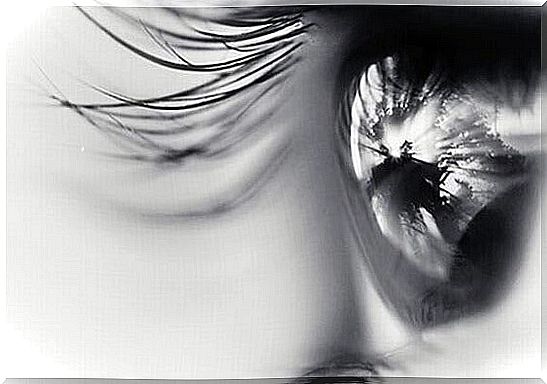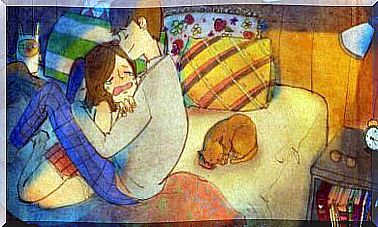Accept Death … How To Get There?

As paradoxical as it may seem, it is very difficult for us to accept the most certain fact of life: death. We are all going to die, and that is absolute truth. No one escapes this fate, but despite everything, we spend a good part of our life trying to ignore or escape it. Some people even go so far as to evade thoughts or conversations about death.
It hasn’t always been that way. In Ancient Egypt, for example, death was a daily theme. Pharaohs and notables, as well as slaves, spent a good part of their lives preparing for death. Usually, men of power designed their graves with sufficient advance and sufficient luxury. They did not believe that life would end with physical death.
Thus, in Ancient Rome, the Romans had a very telling habit; when the great generals won a military victory, they entered the city in the middle of a path of honor. They were victorious for all. However, behind them there was a slave who had to repeat the phrase “Memento mori”. It means: “Do not forget that you are going to die”. The point was not to spoil the moment, but to remember that no triumph is great enough to be beyond death.
The Middle Ages were the time of religious obscurantism, at least in the West. The world was seen as God’s creation, and everything that happened made sense in divine logic. Death was the passage which allowed an encounter with the Gods and Goddesses. The physical life was only a kind of prelude to this final existence.

One of the most representative writings of the time is the poem “Vivo sin vivir en mi” (I live without living in myself, in French) by Teresa de Avila. The first stanza, translated into French, says: “I live without living in myself, / and in such a way I wait, / to die without dying”. It reflects an idea of death as a desire. However, the impossibility of believing that there is an end to human life persists.
Anyway, what is certain is that death was a reality that was fully assumed. It was accepted as a fact of which it was necessary to speak and bear in mind. A fact to which a symbolic explanation was given and for which the human being had to prepare.
Science has been the bearer of great deceptions for the imagination, just as it has also uncovered truths that many still resist today. Modernity brings with it a new flowering of science. Leonardo Da Vinci, who lived in the light of this era, was the first to dare to do autopsies. With this he began to split the sacred halo that gravitated above death.
The great doctors and scientists then began a frontal fight against death. The subject has become a matter of science. Thus, one of the purposes arising from this new knowledge was to prolong life, which was seen as a supreme good. It was also revealed that the human being was an evolved mammal and that in him too reigned the laws of biology.
Some thinkers of the time for the first time lost their faith in God, and with it the belief that there could be something beyond physical life. Currents of thought arose and expressed it this way, but they also showed enormous frustration with life. Nihilism and existentialism are among these currents of thought. Those who adhered to these ways of thinking carried an attitude that struggled between disillusionment and criticism.
The industrial revolution results in mass production for which there does not seem to have any limits. The end of history has been proclaimed and an unprecedented technological revolution has taken place. Step by step, we enter the world of the ephemeral, the disposable, short life cycles.
The idea of death has been diluted. She began to disappear from the worries of the man standing and alive. The time for reflection has been almost completely replaced by the time for work and the rhythm of events, so sustained that it hardly allows us to think about how to organize the hour which will follow. It is as if death has become a catastrophic surprise, which always takes reality by storm.

The rejection of death is such that many even refuse to mourn once it occurs. They try to “get out of it” quickly. To find their habits as before. To find their lifelong preoccupations. To pretend that it is a foreign reality or, in any case, distant.
And what is the use of thinking about death and accepting it as an inevitable fact? This is the question many are asking. The answer lies in these depressions, this anxiety or these intolerances that set in like a cyst, without knowing why. Perhaps accepting nothing, death, represents an exceptional way to learn to live life. Perhaps if there is a greater awareness that everything is ending, also substantive reasons appear to make sense of today’s day, the only one we have.
Images of Three Sisters and Eris Carslon









